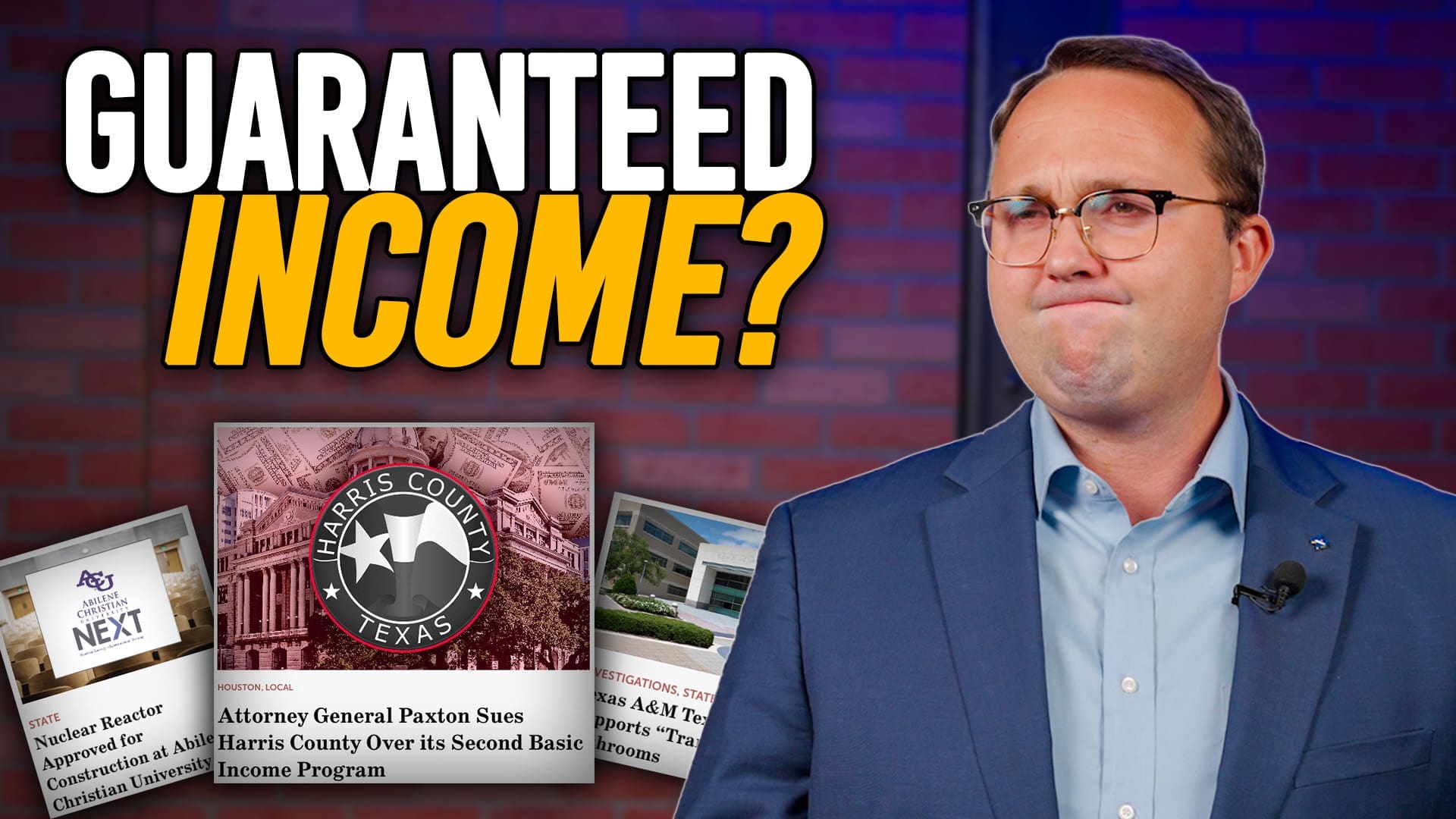The first called special legislative session will reach its forced conclusion on Friday, August 6. The Texas House of Representatives has been paralyzed and unable to conduct legislative business for the better part of three weeks due to a lack of quorum, and as such, the special session will likely end without the passage of any of the items on Gov. Greg Abbott’s agenda.
In response, State Rep. Mayes Middleton (R–Galveston) introduced a bill on Wednesday that seeks to define a legislative vacancy as 14 consecutive days of unexcused absences from the chamber in which the member holds office.
“If you repeatedly don’t show up for work, you are fired from your job. Our offices should be no different. Excessive, unexcused absences are certainly a violation of each member’s oath of office and a refusal to do the job the member is elected to do,” said Middleton.
Thus far, no penalties have been exacted on absent lawmakers, something that has caused debate within the membership of those lawmakers present since most of their Democrat colleagues left Austin for places like Washington, D.C., to avoid the consideration of bills on Abbott’s agenda.
In fact, one lawmaker came back to Austin only to return to Washington, D.C., a few days later after receiving permission to do so from House Speaker Dade Phelan.
Another lawmaker indicated that he couldn’t afford to be away from work and stayed in Texas but away from the Capitol.
Two lawmakers have reportedly absconded to Portugal, leaving their absent colleagues in Washington, D.C.
Some lawmakers contend that the minority of those present can, in fact, penalize absent lawmakers by stripping them of things like their chairmanships, vice chairmanships, committee memberships, or seniority privileges. But, alas, all of those items remain intact.
Abbott has previously suggested that he would declare absent lawmaker seats vacant and hold special elections to replace them, but he has stopped short of giving any specific timetable to employ such a tactic.
Last week, State Rep. James White (R–Hillister) asked Texas Attorney General Ken Paxton for an opinion on whether the seats of absent lawmakers can be declared vacant. He has not received a response as of this publication.
The reality is that the bill has no chance of being passed during this special session, much like the others that have already been filed. It would first require a quorum and then a majority vote to pass each chamber, and given that only a few days remain, it was dead on arrival.
Assuming absent lawmakers do return for a future special session (Abbott has alluded to calling many until his agenda is considered), it is possible this bill or something similar will ultimately get considered.
Other Legislative Attempts
State Rep. Steve Toth (R–The Woodlands) filed a bill on the same day absent Democrat lawmakers officially busted quorum that would take away state funds from lawmakers and their offices in the event they are absent without leave and the House lacks a quorum for a year.
Middleton has also previously filed a proposed constitutional amendment that would not allow an absent lawmaker to receive any salary, per diem, or reimbursement for mileage during the period of their absence.
State Rep. Cody Vasut (R–Angleton) filed a proposed constitutional amendment that would reduce the number of members of each legislative chamber needed to constitute a quorum altogether to just a simple majority.
Ironically, it would currently take at least a two-thirds vote of those present in a legislative body that has a quorum to even pass a proposed constitutional amendment.
Put simply, a quorum in the House of Representatives is a minimum of 100 lawmakers present. There are 83 Republicans and 67 Democrats that make up the overall House of Representatives. More than 50 Democrat lawmakers are currently absent from the House, so for the constitutional amendments to even be considered, it would need the presence of those lawmakers who are currently absent to begin with.
What Does it All Mean?
As the first called special legislative session concludes, with no legislative results to speak of, it is the Texas taxpayer who has been left holding the bag.
Both present and absent lawmakers retained the ability to fundraise for their individual campaigns during the special session, something they are barred from doing during a regular session.
Given that Republican leadership contends that proposed rule changes would require absent lawmakers to actually be present for their consideration—and their reluctance to exact any penalties or follow through on empty rhetoric regarding arrests—it raises the question of whether Republicans will stay the course or offer an incentive to compel Democrats’ return in future special sessions.





